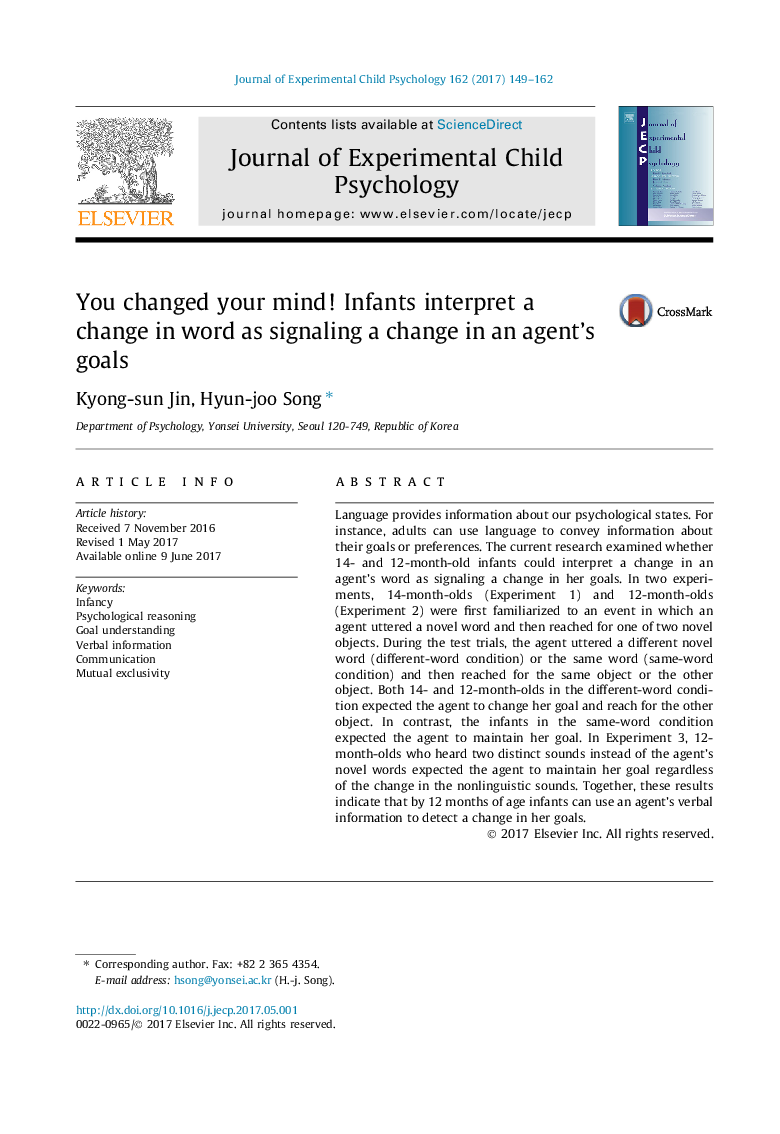| Article ID | Journal | Published Year | Pages | File Type |
|---|---|---|---|---|
| 5039890 | Journal of Experimental Child Psychology | 2017 | 14 Pages |
Language provides information about our psychological states. For instance, adults can use language to convey information about their goals or preferences. The current research examined whether 14- and 12-month-old infants could interpret a change in an agent's word as signaling a change in her goals. In two experiments, 14-month-olds (Experiment 1) and 12-month-olds (Experiment 2) were first familiarized to an event in which an agent uttered a novel word and then reached for one of two novel objects. During the test trials, the agent uttered a different novel word (different-word condition) or the same word (same-word condition) and then reached for the same object or the other object. Both 14- and 12-month-olds in the different-word condition expected the agent to change her goal and reach for the other object. In contrast, the infants in the same-word condition expected the agent to maintain her goal. In Experiment 3, 12-month-olds who heard two distinct sounds instead of the agent's novel words expected the agent to maintain her goal regardless of the change in the nonlinguistic sounds. Together, these results indicate that by 12Â months of age infants can use an agent's verbal information to detect a change in her goals.
